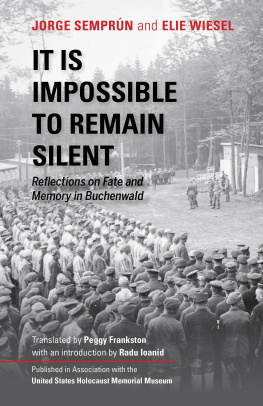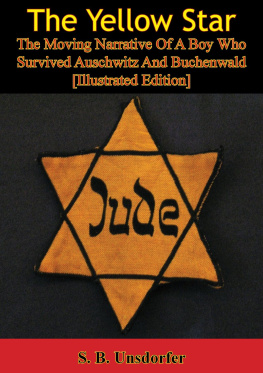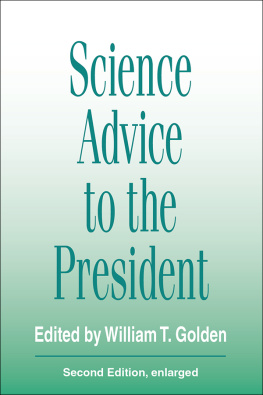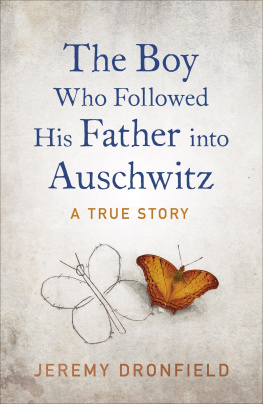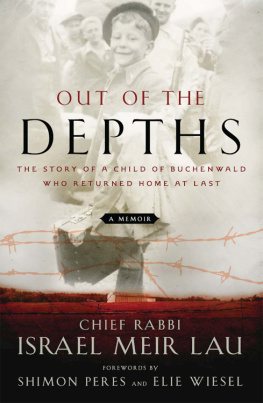SAVING
CHILDREN
SAVING
CHILDREN
Diary of a Buchenwald Survivor
and Rescuer
Jack Werber
With William B. Helmreich
With a new preface by William B. Helmreich
and a new afterword by Martin Werber

Transaction Publishers
New Brunswick (U.S.A.) and London (U.K.)
First paperback printing 2014
New material this edition copyright 2014 by Transaction Publishers, New Brunswick, New Jersey. Copyright 1996 by Transaction Publishers, New Brunswick, New Jersey.
All rights reserved under International and Pan-American Copyright Conventions. No part of this book may be reproduced or transmitted in any form or by any means, electronic or mechanical, including photocopy, recording, or any information storage and retrieval system, without prior permission in writing from the publisher. All inquiries should be addressed to Transaction Publishers, 10 Corporate Place South, Piscataway, New Jersey 08854. www.transactionpub.com
This book is printed on acid-free paper that meets the American National Standard for Permanence of Paper for Printed Library Materials.
Library of Congress Catalog Number: 2013044866
ISBN: 978-1-56000-250-5 (cloth); 978-1-4128-5379-8 (paper)
Printed in the United States of America
Library of Congress Cataloging-in-Publication Data
Werber, Jack, author.
Saving children : diary of a Buchenwald survivor and rescuer / Jack Werber with William B. Helmreich ; with a new preface by William B. Helmreich and an afterword by Martin Werber.
pages cm
ISBN 978-1-4128-5379-8
1. Jews--Poland--Radom (Wojewsdztwo Mazowieckie)--Biography. 2. Holocaust, Jewish (1939-1945)--Poland--Radom (Wojewsdztwo Mazowieckie)--Personal narratives. 3. Werber, Jack. 4. Buchenwald (Concentration camp) 5. Radom (Wojewsdztwo Mazowieckie, Poland)--Biography. I. Helmreich, William B, author. II. Title.
DS134.72.W438A3 2014
940.5318092--dc23
[B]
2013044866
| For My Children |
Martin and Bracha
and their children,
Chava, Benjamin, and Talia | David and Ellie
and their children,
Shoshana, Tovah, and Joshua |
| and to all their future generations |
Master of the Universe, send us our Messiah, for
we have no more strength to suffer. Show me a
sign, O God. Otherwise otherwise I rebel
against Thee. If Thou dost not keep The Covenant,
Then neither will I keep that Promise, and it is all
over, we are through being Thy chosen people,
Thy peculiar treasure.
The Rebbe of Kotzk,
from Chaim Potoks The Promise
Contents
On May 11, 2010, fifteen years after the publication by Transaction Publishers of Saving Children, a conference was held at Yad Vashem in Jerusalem. Its purpose was to honor the memory of Jack Werber, who risked his life as a member of the Buchenwald underground to help save the lives of some 700 children between the ages of six and sixteen who had been incarcerated there. Dozens of children came to Jerusalem to commemorate what took place and to honor Jacks memory as well as those of others involved in this heroic effort.
Speakers included Israel Meir Lau, former chief rabbi of Israel, chairman of the Yad Vashem Council, and himself a child survivor of Buchenwald; Avner Shalev, chairman of the Yad Vashem Directorate; and Martin Werber, Jacks son, whose moving and highly informative afterword also graces this new edition of the book.
Yad Vashem translated Werbers volume into Hebrew after carefully reviewing it for historical accuracy and determining that it was a major contribution to the literature on the Holocaust. This decision gave the work a crucial new audience in Israel, including schoolchildren throughout the country. One of the goals was to make readers aware of the degree to which people were willing to risk their lives to save others.
The importance of this cannot be underscored, for once the spirit of altruism disappears the inner core of society becomes a hollow shell, one in which people care only about themselves. Werber and others like him demonstrated that even in the darkest of times, there are those who step forward and sacrifice themselves so that others may live. Samuel and Pearl Oliner examined the lives of hundreds of people who acted in similar fashion during the Nazi era. They concluded, in their book, The Altruistic Personality, that the major factor in their decision to do so was based on how they were raised by their parents, the values that were transmitted to them as children.
This is why it is so important that stories like Jacks have as wide a distribution as possible. When children today read about these role models they can be inspired to emulate them. When they dont, then instincts of self-preservation predominate. And when that happens society is greatly diminished, with its very existence threatened. We need to challenge the popular notion that people are basically out for themselves.
Yet the justification for helping others isnt only altruistic; its pragmatic as well. In a landmark work, Terence DePres, author of The Survivor, demonstrated that those who helped others had a better chance of surviving because their actions infused their own lives with meaning and increased their ability to withstand the horrors they experienced. Indeed, Jack Werber explained that helping the children when they arrived at Buchenwald gave him a purpose to live when he learned, after years in Buchenwald, that his own wife and child had perished in the Holocaust.
Two years ago, I received a very strange email. It was addressed to me as Helmreich and signed Avner, meaning Avner Shalev, Yad Vashems director. The gist of it was that one of the books photos was not accurate and that if we are going to be able to continue perpetrating our lies about the Holocaust, we need to do better fact-checking. After doing some fact-checking of my own, I discovered that the letter was a complete fabrication. It had been sent by Holocaust deniers based in England with the purpose of creating divisiveness between myself and Avner Shalev.
This incident highlights one of the major problems we face today. There are many Holocaust deniers out there intent on persuading people that the Holocaust is a myth invented by Jews and their sympathizers. As such it is critical that the deniers lies be challenged and exposed. Thats why an eyewitness account by someone like Jack Werber is so important, all the more so because it gives actual names and many details that only those present could have known about. When I interviewed several hundred survivors for my own book on the Holocaust, Against All Odds, I made certain to use real names, so that the accounts could not be easily challenged.
One significant development since 1995, when Saving Children first appeared, is that centers, museums, and educational programs devoted to the Holocaust have continued to grow and proliferate. They have ensured that the Holocaust remains a potent educational tool for new generations who might otherwise have little awareness of what transpired during those terrible times.
Yet even this trend cannot address the long-term problemas time goes on, the memory of the Holocaust continues to fade because the generation that experienced it is dying out. This raises a crucial question: How can we perpetuate the importance of the Holocaust? Elie Wiesel posed this dilemma in the form of a double-edged sword (Im paraphrasing here): If the Holocaust is unique, then what can the world learn from it? And if it isnt unique why focus on it so much?
The answer lies somewhere between the two, I think, but that is a different subject. The real question is how do we keep these and other issues surrounding the Holocaust alive? The only choice is to be much more inclusive, to include more and more peoples like the Tutsis, Hutus, animist Sudanese, Copts, and the earlier cases of the Armenians, Biafrans, Cambodians, and Bosnians in the general discussion. Unless this is done, the genocide against the Jews will be a sidebar 100 years from now. Even today, the Jewish community has difficulty making these events relevant to many of its grandchildren and certainly great-grandchildren. In practical terms, this means that Holocaust-based organizations will need a more inclusive and broader philosophy and will have to bring in other groups and give them decision-making roles on boards and committees.
Next page


